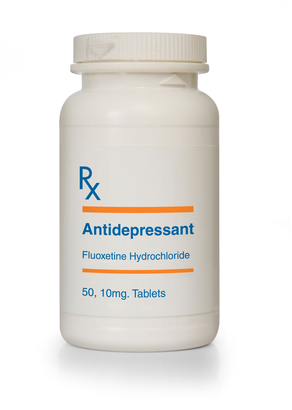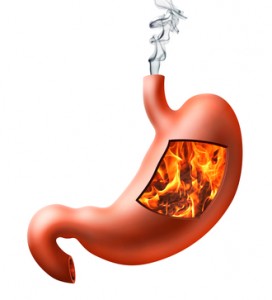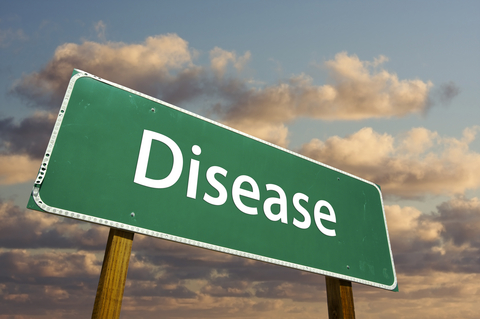 I became severely stressed when I began taking care of my two boys without any help because that’s when my older son’s sensory issues and “fight, fright or flight” issues really kicked in. [Read more…]
I became severely stressed when I began taking care of my two boys without any help because that’s when my older son’s sensory issues and “fight, fright or flight” issues really kicked in. [Read more…]
ADRENAL FATIGUE
WHAT IS GUT DYSBIOSIS?
 Gut dysbiosis — this topic is the motherlode. It’s one of the two core (in my opinion) reasons for the explosion of chronic childhood illnesses we see today.
Gut dysbiosis — this topic is the motherlode. It’s one of the two core (in my opinion) reasons for the explosion of chronic childhood illnesses we see today.
Gut Dysbiosis: A Common Link Among the Epidemic of Children’s Chronic Illnesses
First, let’s discuss the numbers behind this epidemic: How many kids did you know when you were growing up that had autism, ADHD, acid reflux, allergies, asthma, developmental delays and/or mental health issues? [Read more…]
SCARED TO BE IN HIS OWN BODY
 When my older son was 3-1/2, I finally learned that he had sensory processing disorder (SPD); this realization let me recognize the signs later on that my younger son had it as well.
When my older son was 3-1/2, I finally learned that he had sensory processing disorder (SPD); this realization let me recognize the signs later on that my younger son had it as well.
My older son began seeing an occupational therapist (OT) when he was 3-1/2 years old. Before his first visit, she had me fill out two questionnaires: a sensory profile caregiver questionnaire and a foundational listening skills assessment sensory checklist. [Read more…]
Antidepressant Side Effects
 A few years ago, when I was going through an extremely stressful time with my older son’s worsening Sensory Processing Disorder, I became very irritable and cranky. I also developed middle-of-the night insomnia, where I would lie wake for 2-3 hours at a time in the middle of the night.
A few years ago, when I was going through an extremely stressful time with my older son’s worsening Sensory Processing Disorder, I became very irritable and cranky. I also developed middle-of-the night insomnia, where I would lie wake for 2-3 hours at a time in the middle of the night.
I went to my gynecologist, who was my primary care doctor at the time, and he put me on Zoloft, an antidepressant. It definitely helped with the irritability but it, and the Ambien he gave me, did nothing for my insomnia.
I wasn’t crazy about taking pharmaceuticals. Antidepressants come with many possible annoying and/or dangerous side effects, about which Harvard Medical School published an article: “What Are the Real Risks of Antidepressants?” Possible antidepressant side effects are:
- Insomnia
- Skin rashes
- Headaches
- Joint and muscle pain
- Stomach upset
- Nausea
- Diarrhea
- Reduced blood-clotting capacity
- Stomach bleeding, especially if taking NSAIDs (aspirin, ibuprofen, naproxen)
- Uterine bleeding, especially if taking NSAIDs (aspirin, ibuprofen, naproxen)
- Tics
- Muscle spasms
- Repetitive muscle movements
- Parkinsonism (rigid and trembling limbs, a shuffling gait, loss of fine motor control)
- Compulsive restlessness
- Anxiety (ironic given that antidepressants are often given to people with anxiety)
- Low libido or performance
- Discontinuation symptoms
- Self-destructive thoughts
- Suicide
My search continued because I was also experiencing a whole host of other health issues: shingles, uterine fibroids, ovarian cysts, irregular cycles, bronchitis and constant, lingering colds and sinus infections.
Given my own issues and those of my son, I researched the gut-brain connection, especially to find out what effects digestive issues, which my sons had had since birth, had on Sensory Processing Disorder. The gut is called “the second brain”; most neurotransmitters used in the brain are made in the gut.
This concept was popularized by Dr. Michael Gershon in “The Second Brain: A Groundbreaking New Understanding of Nervous Disorders of the Stomach and Intestine“.
Digestive issues can also create nutritional deficiencies, many of which can contribute to the initial conditions that an antidepressant was prescribed for in the first place.
Given that neurotransmitters are made in the gut, it stood to reason that working on digestive issues would help all of us, and it did. I began to sleep through the night without taking medication, my sons’ sensory issues improved (as did their acid reflux), and I was no longer a cranky mommy.
HEALING ECZEMA WITH THE GAPS DIET
 My sons have had eczema their whole lives. It has ranged from cradle cap (did you know that was a form of eczema?) to itchy bumps in the creases of the knees and elbows to full-blown bloody red rashes on the arms and legs.
My sons have had eczema their whole lives. It has ranged from cradle cap (did you know that was a form of eczema?) to itchy bumps in the creases of the knees and elbows to full-blown bloody red rashes on the arms and legs.
Pediatricians, as usual (sorry!), were useless in treating eczema. Their standard advice was to “put a little cortisone cream on it”. I did try that a few times at first with my older son, but I quickly grew worried about the effects of it on his already-poor immune system. [Read more…]
 My older son with sensory processing disorder (SPD) benefited greatly from going to a land-based occupational therapist (OT) for six months. I asked her what we should do about him learning to swim, given that he had such a bad experience with it when he was 2 years old.
My older son with sensory processing disorder (SPD) benefited greatly from going to a land-based occupational therapist (OT) for six months. I asked her what we should do about him learning to swim, given that he had such a bad experience with it when he was 2 years old. Here’s how I finally got help for Sensory Processing Disorder.
Here’s how I finally got help for Sensory Processing Disorder.
 Believe it or not, acid reflux medication dangers are real, and these medications do major harm to your body. Shocking, right?
Believe it or not, acid reflux medication dangers are real, and these medications do major harm to your body. Shocking, right? Methylation is a subject that keeps coming up again and again for my sons and myself. It’s one of those all-encompassing issues like toxicity or gut dysbiosis because so many diseases and conditions are linked, directly or indirectly, to it or rather, a lack of it.
Methylation is a subject that keeps coming up again and again for my sons and myself. It’s one of those all-encompassing issues like toxicity or gut dysbiosis because so many diseases and conditions are linked, directly or indirectly, to it or rather, a lack of it. My Children: Recovered from Sensory Processing Disorder, Acid Reflux, Asthma and Eczema, and getting healthier everyday!
My Children: Recovered from Sensory Processing Disorder, Acid Reflux, Asthma and Eczema, and getting healthier everyday!

